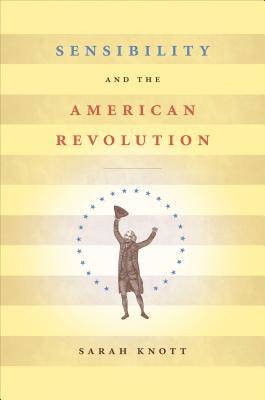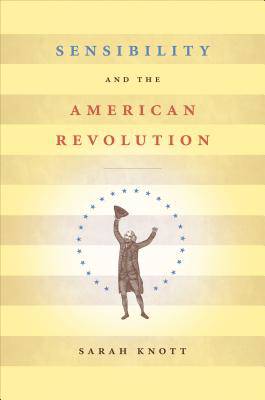
- Afhalen na 1 uur in een winkel met voorraad
- Gratis thuislevering in België vanaf € 30
- Ruim aanbod met 7 miljoen producten
- Afhalen na 1 uur in een winkel met voorraad
- Gratis thuislevering in België vanaf € 30
- Ruim aanbod met 7 miljoen producten
Zoeken
Omschrijving
In the wake of American independence, it was clear that the new United States required novel political forms. Less obvious but no less revolutionary was the idea that the American people needed a new understanding of the self. Sensibility was a cultural movement that celebrated the human capacity for sympathy and sensitivity to the world. For individuals, it offered a means of self-transformation. For a nation lacking a monarch, state religion, or standing army, sensibility provided a means of cohesion. National independence and social interdependence facilitated one another. What Sarah Knott calls "the sentimental project" helped a new kind of citizen create a new kind of government.
Knott paints sensibility as a political project whose fortunes rose and fell with the broader tides of the Revolutionary Atlantic world. Moving beyond traditional accounts of social unrest, republican and liberal ideology, and the rise of the autonomous individual, she offers an original interpretation of the American Revolution as a transformation of self and society.
Knott paints sensibility as a political project whose fortunes rose and fell with the broader tides of the Revolutionary Atlantic world. Moving beyond traditional accounts of social unrest, republican and liberal ideology, and the rise of the autonomous individual, she offers an original interpretation of the American Revolution as a transformation of self and society.
Specificaties
Betrokkenen
- Auteur(s):
- Uitgeverij:
Inhoud
- Aantal bladzijden:
- 352
- Taal:
- Engels
- Reeks:
Eigenschappen
- Productcode (EAN):
- 9780807859186
- Verschijningsdatum:
- 1/02/2009
- Uitvoering:
- Paperback
- Formaat:
- Trade paperback (VS)
- Afmetingen:
- 155 mm x 231 mm
- Gewicht:
- 517 g

Alleen bij Standaard Boekhandel
+ 115 punten op je klantenkaart van Standaard Boekhandel
Beoordelingen
We publiceren alleen reviews die voldoen aan de voorwaarden voor reviews. Bekijk onze voorwaarden voor reviews.











